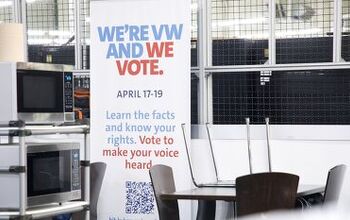Daimler Boss Calls For Safety Standard Harmonization
Daimler head Dieter Zetsche called on regulators on both sides of the Atlantic to approve a US-EU free trade agreement, and along with it, called for a harmonization of vehicle safety standards.
Speaking to the Detroit News, Zetsche said
“Take the example of U.S. and European automotive safety regulations. Both are the strictest in the world. However, the crash tests we carry out still vary. On top of that, different required equipment — think of taillights, turn signals, mirrors, etc. — makes the standardization of our cars, SUVs and trucks impossible,” Zetsche said. “Even small differences in safety regulations result in huge extra costs: We do research twice. We develop twice. We tool, procure and certify twice.”
The differing standards between the United States and virtually every other world market has long been a sore spot for foreign auto makers, who must deal with the cost issues outlined by Zetsche. Homologating vehicles for America’s FMVSS standards can be extremely expensive, and is often cited as a barrier that prevents America from getting many lower volume specialty vehicles that are sold in other locales. However, others argue that FMVSS contains more rigorous safety standards in certain areas.
More by Derek Kreindler

































Comments
Join the conversation
Tbis would work to enthusiast favor. Today, we look at all the other engines and manuals we don't get. We don't get them because a car maker has to do a business case for how many folks will choose the manual. Unless you are BMW, you don't do it, and even there, you don't go all the way due to certification costs. One standard would allow a lot more choice for us. Don't lose the amber turn signals. Lastly, Aspherical mirrors do what techy blind spot monitors do for little money and no complexity. All my Euro cars have them and they've saved me at least a thousand blind spot incidents.....
@Lou_BC - My reply is above, half way up. My phone slices off the right side and the reply buttons of long threads.
@Vulpine - EU OEMs had absolutely no problem having slightly different cars for different markets. They still don't. Citroen was a tiny niche OEM then, to the US. Do you think the US market was worth the expense of changing the bumper and lights? Profit had to have been very thin.
What I do find odd are the people attempting to justify the US's stance have yet to furnish evidence to back their claims. 1. The UNECE model was created to incorporate many nations, hence, it is better and fairer for international trade. 2. It assists the manufacturers in reducing the costs of motor vehicle manufacturing. The consumer wins out in the end. 3. It is flexible to allow nations the ability to maintain there specific markets, ie, Australia, has larger motor vehicles in comparison to the EU. 4. The UNECE model doesn't only cover safety, it covers all aspects of vehicle design, ie, emissions. Again making it cheaper to manufacturer and have international trade in vehicles. The US's position regarding vehicle design, including, safety and emissions, etc is the only system of it's type globally. It is an insular system that doesn't support fair trade. This is why the world is moving towards the UNECE model for the harmonisation of vehicle design. The US is also prepared to enter into trade arrangements with the EU in vehicle trade. The US on the other hand is having difficulty making trade arrangements with Asia. Why? Well, the Asian market is the second or if including China the largest market for pickups globally. If you study all of the US's regulatory controls and tariffs they all protect the 'geese that lay the golden egg' for Detroit. The profit makers, full size pickup trucks. Detroit is desperate not to have the 'invasion' of cheap Asian pickups again, like in the late 60s and 70s. The US is that protective of the pickup market it even has extended a 25% tariff, termed the Chicken Tax. This has been in place for 60 years and created a situation in the US that if this tariff is removed there will likely be a dramatic fall of the Detroit Big 3. The US must wean its reliance on this tax and other technical barriers, like it's refusal to join the globe in fairer trade. This will ensure the future of the US vehicle industry. Who and what is the biggest proponents of this insular market?? Guess??